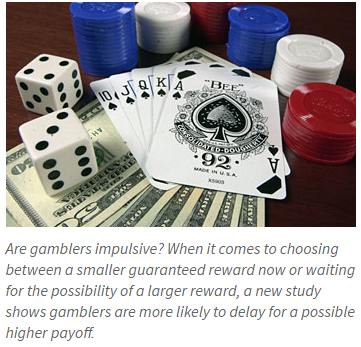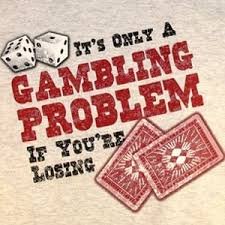-
Posts
4137 -
Joined
-
Last visited
-
Days Won
44
Everything posted by Awena
-
I saw he has zero posts here. Let's hope he's going to show up.. I feel like to chat with their Live Support .
-
Dear Afi I completely forgot about that blardy ISP of yours! Damn! of course it's reasonable when it comes to that issue. I know you do everything 100% as we should, but your Awena forgot about ISP issues! I hope this year it's going to change, that ISP thing! P.S. I will make it happen, don't know how at the moment, but I promise you will have damn fast connection! I promise now to you!!!
-
Reel Rush http://www.askgamblers.com/game/slots/reel-rush-g4488#review-573780ea7528f711eb8b4618
-
Darling, I know how busy you are but please, if you could post your reviews link into single post. 1 review link, one post, not like we got used to do it. That's how we make it easier for Valdes and for our visitors, members. One link per post please! Thank you Mr.Master!
-
Dear Blondie, I would suggest to get wit their Live Support or fill out the form which you can find on their website. Get your answers lady !
-
Creature From the Black Lagoon http://www.askgamblers.com/game/slots/creature-from-the-black-lagoon-g4511#review-573722b27528f76e338b45fa
-
Wonky Wabbits - NetEnt http://www.askgamblers.com/game/slots/wonky-wabbits-g4620#review-5737221b7528f75f8b8b45c2
-
Aliens by NetEnt http://www.askgamblers.com/video-slots/aliens-game-review/#review-5737218b7528f781338b46ae
-

I'm currently listening to...
Awena replied to Luciana's topic in Trivia, Quiz Games & Non-Gambling Talk
-

I'm currently listening to...
Awena replied to Luciana's topic in Trivia, Quiz Games & Non-Gambling Talk
-
Gambling psychology offers insight into self-control, risk-taking, impulsivenessA bird in the hand still has more cash value than 10 in the bush. Casual gamblers may be no more impulsive than non-gamblers when it comes to discounting the value of a delayed reward in favor of a smaller amount of cash on hand. But gamblers are more likely than non-gamblers to take a chance on a possible higher payoff instead of taking a smaller guaranteed reward. That’s the conclusion of a recent study by three psychology researchers at Washington University in St. Louis. Their study, “Is Discounting Impulsive? Evidence From Temporal and Probability Discounting in Gambling and Non-gambling College Students,” was published in a recent issue of the journalBehavioural Processes (Volume 64, Issue 3). “The main area of research of the study is discounting, where the value of the reward diminishes as it’s delayed, when you can’t have it right away,” said Leonard Green, Ph.D., Washington University professor of psychology in Arts & Sciences and one of the co-authors of the study. “You might rather have $80 now than $100 in a year, because the $100 later is worth less than $100 to you now.” The study also looked at probabilistic rewards, “which is how we get into gambling,” said study co-author Joel Myerson, Ph.D., research professor of psychology. “You might rather have $100 for sure than a 50 percent chance of getting $200. You discount the value of the probabilistic option.” Daniel D. Holt, a doctoral candidate in psychology, studied 18- to 24-year-old college undergraduates at a Midwestern state university where gambling is legal at age 18. Holt chose 19 students who were identified as gamblers based on a score of 4 or higher on the 1987 South Oaks Gambling Screen (SOGS), developed by H.R. Lesieur and S. B. Bloom. For a control group of non-gamblers, 19 volunteers were selected based on similarities to the gambler group in both gender and age, but whose SOGS scores were either 0 or 1. Holt chose a college-age sample in order to avoid individuals who might already have developed other psychological and social problems associated with pathological gambling. “Dan was more interested in learning about basic aspects of impulsivity as represented by risk-taking or an inability to delay,” Green said. “So he wanted to use a rather normal population: they’re people who gamble but they’re not pathological; they’re not in need of therapy.” To assess temporal discounting, the individuals were given a series of choices between a smaller amount of money (e.g., $100) available immediately and a larger amount (e.g., $1,000) that could be received after a specified delay (e.g., 3 years). The amount of the immediate reward was adjusted after each choice to determine the subjective value of the delayed, larger amount. “There were no differences between the gamblers and the non-gamblers in the degree to which they discounted the delayed rewards,” Green said. “The gamblers weren’t differentially affected by delay. Although the more delayed the reward, the less they wanted it, their choices were no different from the non-gamblers.” But when probability discounting was assessed, “we found that the gamblers were much more likely to go for the risky, higher payoff,” Green said. In the probability discounting tasks, the participants chose between a smaller, certain amount of money and a larger amount that could be received with a stated probability. A similar adjusting-amount procedure was used to estimate the subjective value of the probabilistic rewards. Although both groups discounted large probabilistic amounts more steeply than small probabilistic amounts, the gamblers did not discount as much as the non-gamblers. In other words, “college students who gambled were willing to take more risks than non-gamblers,” said Holt. “Given a choice between a risky, larger reward or a safe, smaller reward, the gamblers were more likely to take the risky payoff,” Green said. Insight into behavioral problems The study results might explain why some people make certain bad choices. “For example, why is it people engage in behaviors the long-term consequence of which is worse for them?” Green said. “Why do you have that incredible chocolate cake right now when you’re trying to lose weight, or you’re trying to stay healthy, or trying to stay fit? One of the reasons is that being healthy, being fit, is a delayed reward; it occurs later. And the later it is, the less it controls your present behavior. It’s discounted.” Similarly, gamblers “might be making bad choices because they’re not taking the risk into account adequately,” said Holt. The researchers were not interested in gambling, per se. “The area of discounting may have important implications for a lot of different human behaviors — self-control issues, impulsivity, risk-taking, as well as gambling,” Green said. The study also argues against the longstanding view that impulsivity is a general trait that includes both an inability to delay gratification and a tendency to take risks. The term “impulsive” is often used to describe people who “can’t wait. They can’t delay; they’ve got to have it now,” Green said. “So they’re willing to forgo something better that comes later in order to get something right away.” But the term can also be applied to someone who doesn’t take risks adequately into account. “They just act ‘impulsively;’ they don’t think and consider all the risks,” he said. So if gamblers are thought to be impulsive because they don’t adequately consider risks, then some researchers might argue that gamblers would also be impulsive in being less likely to delay. “But what Dan found was that they weren’t more impulsive with delay,” Green said, “suggesting that this term ‘impulsive’ lumps together traits that might be different.” So the term “impulsivity” might not help distinguish between different disorders that are all currently classified as impulse-control disorders. “What we would argue is that our study might give insight into different behavioral problems,” Green said. “Some problems might be a combination of risk-taking and an inability to delay. Other problems might reflect difficulties with risk-taking; and other problems might reflect difficulties with the ability to delay. And the term ‘impulsive’ can’t be used to describe all three of those.” Green, Myerson and Holt suggest that their research may lead to ways of assessing the likelihood that people will engage in self-harmful behaviors. Psychologists might be able to target those individuals and develop cost-effective interventions for those who are at risk, or assess their improvement as a result of therapy. “If the individual understands the determinants of his or her behavior,” Green said, “then the individual may be better able to control his or her own behavior. Dear Sorenjo, I hope this might help you to get this issue solved or understand what's going on and like Guru said, it's all about self control .
-

I'm currently listening to...
Awena replied to Luciana's topic in Trivia, Quiz Games & Non-Gambling Talk
Enjoyy!!! -
The Wish Master http://www.askgamblers.com/video-slots/the-wish-master-game-review/#review-57364a2b7528f7ddaf8b4625
-
It's Friday the 13th! This date has been associated with bad luck for centuries. Many people believe that this day is cursed and in an almost Halloween-like atmosphere, tell spooky tales about misfortunes that have taken place on this day. The fear of Friday the 13th has been called friggatriskaidekaphobia, and while it may seem like an outdated concept to fear the day, the superstition still lives. According to some estimations, the world loses $700 to $800 million in revenue on Friday the 13th because people do not want to conduct business. And it's not just that, 80 percent of the high rise buildings reportedly skip the 13th floor and many airports and hospitals skip gate 13 and room 13, respectively. Several theories have been proposed about the origin of the Friday the 13th superstition . But the one that we like the most is that in numerology the number twelve is considered the number of divine organizational arrangement or chronological completeness, as reflected in the twelve months of the year, twelve hours of the clock day, twelve gods of Olympus, twelve tribes of Israel, twelve Apostles of Jesus, the twelve successors of Muhammad in Shia Islam, twelve signs of the Zodiac, the 12 years of the Buddhist cycle, etc., whereas the number thirteen was considered irregular, transgressing this completeness. Nevertheless, today we feel like it could be a funny day if you forget about the bad things and superstitions and indulge in some funny phrases that we've gathered up for you regarding the date. - "If you stand in front of a mirror and say One Direction 5 times, they come out and haunt you." - "On Friday the 13th weird things are supposed to happen ... Maybe I'll get in to a relationship." - "It's Friday, Friday, gotta get down on Friday,' said Jason Voorhees." - "Friday the 13th. Where are you Rebecca Black?" - "Friday the 13th would be a lot more frightening if Jason chased you down in a big SUV and made you pay to fill it up with gas." - "It's Friday the 13th. This simply means that most of my children will blame witchcraft for their regular stupidity."
-
Wild Rockets Slot http://www.askgamblers.com/video-slots/wild-rockets-netent-game-review/#review-573613a87528f726178b4614
-

Let's have some chit chat :)
Awena replied to ValDes's topic in Trivia, Quiz Games & Non-Gambling Talk
-

Let's have some chit chat :)
Awena replied to ValDes's topic in Trivia, Quiz Games & Non-Gambling Talk
-

Let's have some chit chat :)
Awena replied to ValDes's topic in Trivia, Quiz Games & Non-Gambling Talk
Dalingator, I must go PRO now, I'll e-mail you within one hour. Have a nice day and check your inbox please! Danke! -

Let's have some chit chat :)
Awena replied to ValDes's topic in Trivia, Quiz Games & Non-Gambling Talk
Hi Blondie! I had no laptop and now I used borrowed one. I wanna say that I hate MacBook, I got rid of that freaking laptop forever!!!! Don't want hear Mac..ever again in my life! Best wishes to yall!! -

Let's have some chit chat :)
Awena replied to ValDes's topic in Trivia, Quiz Games & Non-Gambling Talk
I agree on this with you and I hope we will have chance to go fishing and have barbecue sometimes soon.. ouuu yeahh!!! -

Let's have some chit chat :)
Awena replied to ValDes's topic in Trivia, Quiz Games & Non-Gambling Talk
No surprise at all. Google their reviews and you will get to know wit who are you dealing with. Honestly, Skrill sucks big time.














